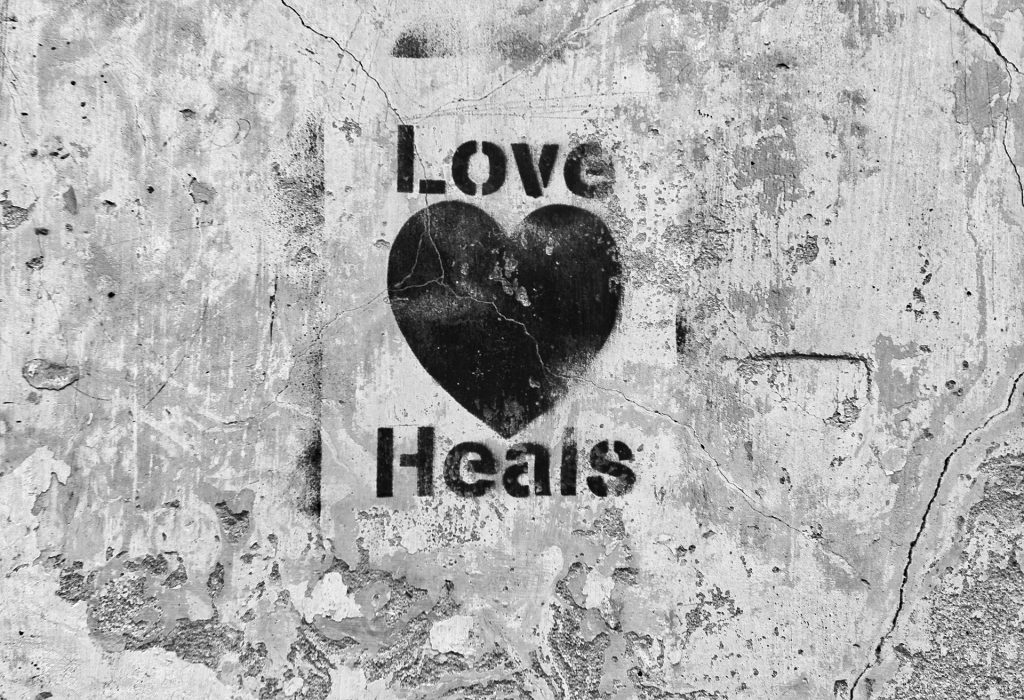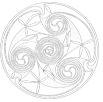The Wounded Healer
By Paul Dunion | March 9, 2023

“The analyst must go on learning endlessly …. it is his own hurt that gives the measure of his power to heal”. Carl Jung
There continues to be a great deal of mystery and suspicion regarding psychotherapy. I hear “How can a stranger really know me?” or “Why would I want a stranger to know my deepest secrets?”. The word psychotherapy from the Greek, translates to “care of the soul”. Why does the soul need care? And what kind of care does the soul need and where does the care come from? At the very least, the soul may need care because we emerge from the womb extremely vulnerable and fragile, making us very susceptible to being hurt and wounded.
I’ve heard it said that God may have made a mistake when life is so dangerous, with the inevitability of being harmed. Mistake or not, the journey offers ongoing opportunity to be hurt and injured by natural events such as the recent earthquake in Turkey or at the hands of others such as the war in Ukraine. We can lament and even protest the likelihood of being harmed. Or we allow our hurt to teach us about life in a way that does not seriously blur our vision of the generous moment. This may be what it means to live life on life’s terms.
Before looking more closely at the Wounded Healer, we can address the question, what is healing? An ancient definition of the word healing is “to make whole”. Unfortunately, unlike an automobile engine whose parts can be reassembled and actually made whole, the soul or psyche cannot be reduced to a particular number of parts seeking reassembling. Hence, I think of healing as leaning in the direction of wholeness. This idea of leaning and not arriving at some complete and unblemished place is challenging to the average ego. This leaning is mostly an invitation to discover some part of us that got marginalized in order to support safety and acceptance by others. Within the embrace of such an invitation we carry the banished part with more awareness, more compassion understanding this carrying as healing.
Where Do Wounded Healers Come From?
In his article, “The families of Origin of Social Workers”, Bruce Lackie cites a study of 1,577 professional healers, with 75% of them identifying themselves as ‘parentified children’. James Hollis points out that parentified children can feel guilty for not being able to heal their parents. I’ve noticed my propensity to project my own parental guilt onto friends and acquaintances whom I perceive as suffering. The inevitable risk is to slide into being self-righteous either suggesting I possess the appropriate remedy or for that matter, claiming I’m convinced there is no need for a remedy.
I am acutely aware of being in a relationship where I’m not perceived as a valued emotional resource and stripped of my chance to save my folks. As the opportunity to redeem my early failure slips away, it can leave me feeling helpless, angry, and inadequate. All the same childhood reactions come to the surface, seeking my attention. It can be a time to remind any younger version of me that they never had the power to save our parents. The goal is to interrupt the magical thinking of a child, who wants to claim idyllic competencies.
Let’s take a closer look at parentification and how it might become the birthplace for an eventual healer. Typically, parentified children step into a parental void. A parent’s absence may occur due to mental illness, addiction, medical issues, or unavailability due to work, war, or travel. The child may take on responsibility for caring for themselves, siblings, or care for a parent. In some cases, the child is called to step in as a surrogate spouse, which is also referred to as emotional incest. In her book, Carl Jung – Wounded Healer of the Soul, Claire Dunne points out that Jung’s parentification had him stepping in as a surrogate partner and confidant for his mother. “Emile (Jung’s mother) treated young Carl ‘like a grownup’, confiding in him things she couldn’t tell her husband in their ambivalent married state.”
Any consideration of parentification easily confirms a child being snatched out of childhood, disengaging from a normal developmental process. A level of innocence is compromised, permission to be gullible, a lack of sophistication, maximizing fun and play are all easily mitigated. Without minimizing a parentified child’s losses, we can ask how did childhood losses become fertile ground for an emerging ability to heal? Were the losses what was sacrificed in order to give way to an early yearning to offer care? Could we even view parentification as an Initiation into a devotion to understand and care for the human condition?
As lightheartedness and playfulness lose some of their hold, feelings of responsibility, obligation and what might be deemed helpful come to the surface. Adults who were parentified children often report having to pretend they knew how to care for themselves and others. However, if they can work through feelings of inadequacy and shame, they can begin to take the idea of offering genuine care seriously. It may be this desire to offer care that sits early on in a parentified child’s soul. Let’s look more closely at how this early desire to offer care translate into becoming a wounded healer.
The first obstacle to being a wounded healer is usually an ego attached to an academic degree, a long list of trainings and workshops all aimed at confirming the ego’s need to demonstrate credibility. It’s not to suggest that education and training are not useful and able to strengthen what can be offered. However, if there is any hope of a client leaning into the direction of wholeness, we will need to move from an ego orientation to a soulful one.
The Wound Relationship
What is the offering of the wounded healer? What is the nature of the care they offer? The essential offering of care is the modeling how to have a healing relationship with the wound. The move away from ego to soul is the healer’s relationship with his or her wound, a relationship based upon offering genuine care to the wound. It may be an arduous task for healers to de-shame their wounds. However, they maintain a steadfast commitment to do so. They don’t linger in the victim room. They accept their wounding as a natural expression of the human condition. They accept any help that strengthens the capacity to carry the wound with compassion and grace. They remain receptive and open to being informed by the wound about who they are or about some aspect of life.
My mother dropped out of school after the eighth grade and would mock and ridicule formal education and jobs that required formal education. After I graduated from high school she suggested that I might consider work at the local textile mill. Instead, I proceeded to acquire three academic degrees. Obviously, my decision would be the brunt of maternal sarcasm and sneers. Shortly after I turned 70, I looked back at my adolescent attitude toward school which was that studying would only diminish my cherished personae as an athlete. I began to realize that my academic protests were mostly my way of loving my mother, who I now saw as carrying shame about her limited education. My wound continued to teach.
Wounded healers understand that the neglect or abuse befalling them by their parents was due to the wounding of those parents in their own families of origin. Such understanding can mitigate the need for hatred, revenge, or a need to castigate. This understanding may not quickly morph into forgiveness. Sometimes wounded healers live with “My parents did the best they could, and it wasn’t enough”. I like to think of this statement as a universal description of parents. However, I do feel myself tighten when I’m the parent. Now that we have some understanding of the kind of relationship wounded healers have with their own wound, let’s look at the gifts that can be offered from that relationship.
The Gifts
- Wounded healers offer the client reassurance that they understand the nature of being wounded and the medicine that the wound seeks. They can do this without any elaborate discussion about their own healing journey. The client’s understanding of the presence of the wounded healer will be augmented by the acceptance the healer offers to whom the client is now, rather than implying acceptance comes with the client’s improvement.
- Wounded healers understand that the process of healing is neither about fixing nor arriving somewhere whole. They model carrying their own wounds with understanding, acceptance, and compassion, remaining curious about what the wound may be asking for.
- The presence of the wounded healer becomes a touchstone for care for the soul, lightening the load of mystery often surrounding the process of healing.
- Wounded healers can be living examples of what it means to live life accepting that most of our lived experience is about life and not about us with the wound potentially offering us more understanding of life. “When we become aware that we do not have to escape our pains, but that we can mobilize them into a common search for life, those very pains are transformed from expressions of despair into signs of hope”. (The Wounded Healer by Henri Nouwen)
- There can also be valuable modeling regarding accepting that the human condition will be susceptible to hardship, challenge, and misery, as well as times of enchantment. This can go a long way concerning dismantling hierarchy whereby the client views the healer as all together and themselves as damaged goods.
- Wounded healers can model de-shaming of a wound and what it means to let go of the notion that the wound confirms victimhood.
It may be that we can only truly be in a caring relationship with another’s wound when we are in a caring relationship with our own wounds. I find Emma and Jim to be two wounded healers who offer me support and guidance as create self-care. That person will know my wounding intimately. They will know me, my wounds, and my gifts intimately. Similar to the ancient Greek physician Asclepius who established a retreat for healers, I experience my relationship with a wounded healer who soulfully walks with me as a retreat and deeply restorative. I can relax any compelling need to impress and soften into an invitation to that part of me seeking a welcome.
There are also a host of simple restorative offerings for the wounded healer. I am partial to watching Ted Lasso on Apple TV+, playing with our dog, walks with Connie and Kody (the dog), talks with dear friends, therapeutic massage with Bonnie, Cranial sacral with Travis, cycling, going to the beach, writing about topics like the wounded healer and afternoon naps.

Thank you for this Paul
A clear & heartfelt description of the wounded healer. Thanks, Paul.